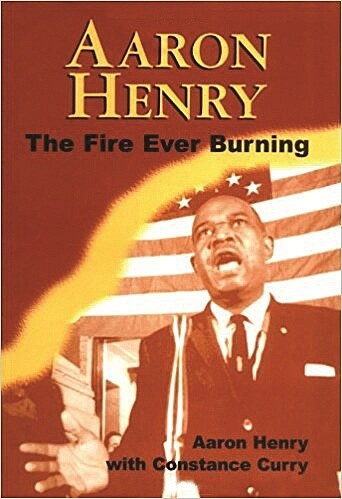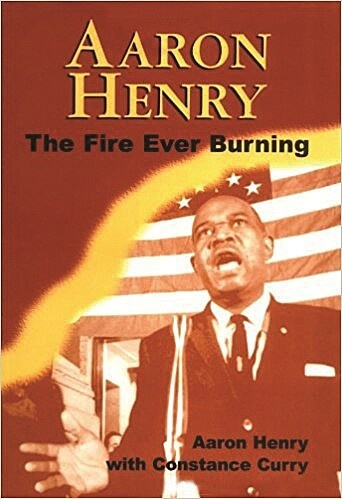
Aaron Henry
The Fire Ever Burning
Although Aaron Henry (1922-1997) was one of the nation’s major grassroots fighters in the freedom movement on local, state, and national levels, his name has not yet been accorded its full recognition. This book reveals why Aaron Henry should be acknowledged, in the ranks of Fannie Lou Hamer and Medgar Evers, as a truly influential crusader.
Long before many of his contemporaries, he was a civil rights activist, but he preferred to stay out of the limelight. A certified pharmacist and owner of Fourth Street Drug Store in Clarksdale, he considered himself a down-home businessman who must not leave Mississippi. Although he was a key figure in bringing Head Start, housing, employment, and health service to his state, his tact and his quiet diplomacy garnered him less attention than more radical protesters received.
Born in the age of segregation in the Mississippi Delta, the son of a sharecropper, he became state president of the NAACP in 1959. He was able, more than any previous leader, to unite Mississippi blacks, despite diversities of age, ideology, and class, in confronting white supremacy. He spearheaded the formation of the Mississippi Freedom Democratic Party and the Council of Federated Organizations (COFO). Some activists criticized him for urging protesters to take the middle ground between the NAACP’s conservative position and SNCC’s militant activism. Facing recurring death threats, thirty-three jailings, and Klan bombings of his home and drugstore, Henry remained stalwart and courageous. John Dittmer describes him as a "conservative militant," willing not only to risk his life but also to compromise on issues of strategy even when doing so led to alienation from outspoken activists.
Constance Curry has shaped this personal narrative of a brave and underacknowledged man who helped to change his state forever. To his candid story, transcribed from interviews he gave two young historians in 1965, Curry adds new material from her own interviews with his family, friends, and political associates. Henry’s prophetic voice documents a momentous period in African American history that extends from the Great Depression through the civil rights movement in the pivotal 1960s.
Aaron Henry was a civil rights hero whom I knew best for his tenacity in breaking through racial discrimination and making sure that African American Democrats had a voice in party politics in Mississippi and in the nation. I applaud Constance Curry for making his story better known.
Dr. Aaron Henry was born to a family of sharecroppers on a Mississippi cotton plantation. He went on to change Mississippi’s history. Elected president of the Clarksdale NAACP in the early fifties and later serving as state president for over thirty years, he led boycotts, demonstrations, and marches, despite his home and his drugstore being bombed and his wife being fired from her teaching job. Aaron Henry: The Fire Ever Burning will help make Dr. Henry’s life a beacon for people around the globe who refuse to accept poverty and discrimination and who join the struggle with hope for a better future.
By sharing with us the story of Aaron Henry, Constance Curry deftly brings to light the life of one of the movement’s quiet warriors. Aaron Henry: The Fire Ever Burning is a gift to all of us and an important contribution to the history of the struggle for social justice.
Aaron Henry (1922-1997) was a Mississippi-born civil rights leader and politician. In addition to his civil rights work, he was Mississippi NAACP president and a leader of the Mississippi Freedom Democratic Party. He also served in the Mississippi House of Representatives from 1979 until 1996. He is author (with Constance Curry) of Aaron Henry: The Fire Ever Burning, published by University Press of Mississippi. Constance Curry (1933-2020) was an attorney and author or coauthor of six books, including Silver Rights, winner of the Lillian Smith Book Award, and Aaron Henry: The Fire Ever Burning, published by University Press of Mississippi. Her work focuses on people who were active in the civil rights movement of the 1960s.




